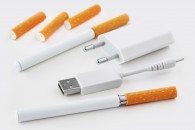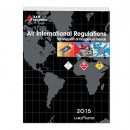On August 28, 2015, the United States Department of Transportation’s Maritime Administration (MARAD), through a cooperative agreement with the United States Department of Energy, initiated field tests on a prototype hydrogen fuel cell to power refrigeration units in the port of Honolulu, Hawaii for freight shipments between harbors. “The Maritime Administration continues to fund innovative…
Lufthansa becomes the latest airline to restrict lithium battery transport—and the strictest
Transporting lithium batteries by air continues to get more challenging. Lufthansa has just imposed restrictions that go well beyond international regulations. Here’s a breakdown of the new restrictions, effective August 31*: Complete embargo of excepted standalone lithium batteries from all aircraft. These shipments will no longer be accepted on any Lufthansa Group passenger or…
Recap of the ECOSOC Sub-Committee of Experts on the Transport of Dangerous Goods
A New Biennium With the retirement of Mr. Hart of the UK, a new UN Sub-committee of experts on the transport of dangerous goods biennium began on 22nd June under the chairmanship of Mr. Pfund from the US. Mr. Pfund follows in the footsteps of such luminaries from the US DOT as Mr. Al Roberts…
Canadian Pacific Railway Continues Court Action on Lac Megantic Train Disaster Settlement
In continued litigation tied to the horrendous oil train derailment and subsequent fatal explosions and fires in Lac Megantic, Quebec in 2013, Class One railway Canadian Pacific (CP) announced that it would continue to seek protection from liability and ask for voiding court action in reference to the $432 million dollar (Canadian) settlement recently agreed…
Airlines/ICAO React to e-cigarette Storage on Passenger Flights
As of June 15, 2015, the International Civil Aviation Organization (ICAO) has banned passengers and crew from storing electronic cigarettes (e-cigarettes) and other battery-powered electronic smoking devices in checked bags on passenger airlines. This final ruling follows an advisory warning to the airline industry issued by ICAO in December 2014 regarding safety concerns related to…
Canada Revises WHMIS to Incorporate GHS
Health Canada (more-or-less the Canadian government’s equivalent of the Occupational Safety and Health Administration (OSHA) in the United States) has officially published their adoption of the United Nations Globally Harmonized System for the Classification and Labeling of Hazardous Chemicals (GHS) into their Workplace Hazardous Materials Information System (WHMIS) (i.e. the approximate equivalent of the US…
USDOT/PHMSA Releases Final Rule HM-215M, Harmonizing Requirements with UNMR, ICAO, IMDG Code Changes
In the January 8th 2015 edition of the US Federal Register, the United States Department of Transportation’s (USDOT) Pipeline & Hazardous Materials Safety Administration (PHMSA) published a final rule under Docket # PHMSA-2013-0260 (HM-215), RIN 2137-AF05 under which the agency sets forth specific changes to the US 49 CFR Hazardous Materials Regulations (HMR) to harmonize…
ICAO releases Corrigendum #1 for the 2015 – 2016 edition; addresses the carriage of Lithium Metal Batteries aboard passenger aircraft
On December 10th, 2014, the International Civil Aviation Organization (ICAO) issued an Electronic Bulletin (EB 2014/72) which announced the release of Corrigendum #1 (itself dated November 20th, 2014) to their 2015 – 2016 edition of the Technical Instructions for the Safe Handling of Dangerous Goods, commonly referred to in the industry as the ICAO TI. The…
The Changing Regulations Pertaining to the Transportation of Lithium Batteries
In August of 2014 the U.S. Department of Transportation (DOT) promulgated final rule HM-224F affecting the safe transport of lithium batteries[i]. DOT announced that the resultant effects from the revisions of HM-224F will “strengthen safety conditions for the shipment of lithium cells and batteries. These changes, some of which focus specifically on shipments by air,…
‘Why do I need a new Air Regs book every year?’
I’m often asked: why do I need a new Air Regs book every year? Always an interesting question and the answer changes every year! For 2015 though, it’s really simple. This is an ICAO year, one in which there’s a new edition of the ICAO Technical Instructions which is worldwide legal requirements for transporting dangerous…



